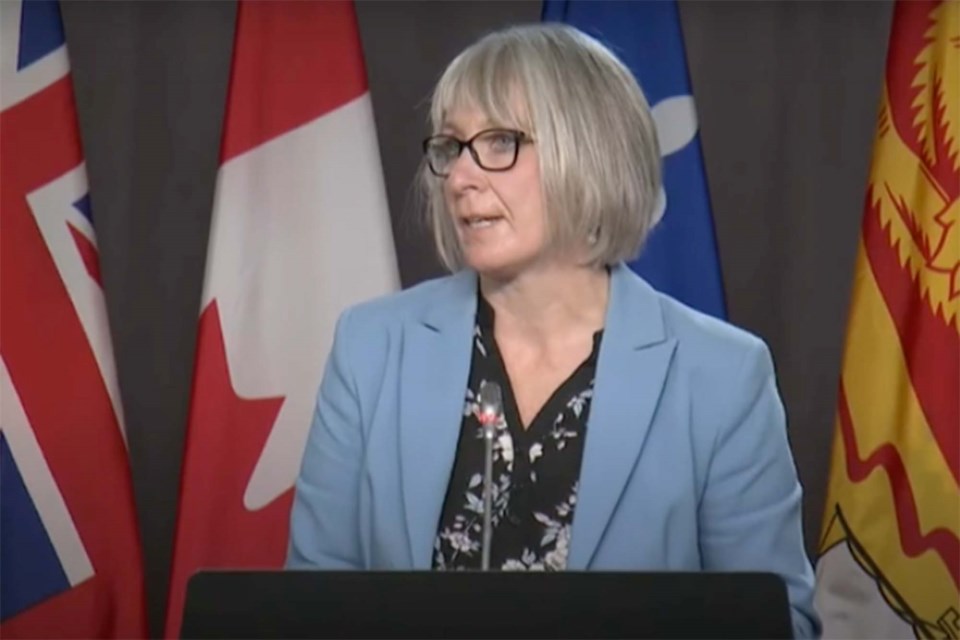St. Albert schools and families will have new ways to access COVID-19 vaccination information this fall.
“We're starting to face a bit of a different fight when it comes to the pandemic now, typically relating to vaccine hesitancy. There's a lot of misinformation going around,” said Lewis Smith, manager of national projects for the Canadian Safety Council.
On July 27, federal Minister of Health Patty Hajdu announced funding for two COVID-19 immunization information projects for youths.
Through the Immunization Partnership Fund, BGC Canada (formerly Boys and Girls Clubs of Canada) will receive up to $500,000 to promote COVID-19 vaccine benefits to families and children who access their services.
The safety council will receive around $220,000 in funds through the fund for a COVID-19 vaccination-awareness program aimed at students from Grade 1 through Grade 8.
Smith said they were inspired to do a COVID-19 vaccination awareness program after they received a lot of positive feedback from the coronavirus program they developed for schools at the beginning of the pandemic.
It was accessed by schools around the country, including one school in St. Albert, where a teacher downloaded the module multiple times.
“When the pandemic started, we realized pretty quickly that school-aged children were one of the more under-served communities that were not being addressed directly,” Smith explained.
The safety council decided to develop a similar program on the COVID-19 vaccine, one directed to school-aged children at a level they can understand, “[with information that is] scientifically researched and reviewed by health-education officials, with the goal of giving them information that they may not get from home,” said Smith.
Thérèse Lorincz-McRae, club support manager for BGC Canada’s western region, said their clubs often act as translators in terms of actual translation for newcomers and immigrants, but also as closer trusted sources of information. People will ask them about things they hear on social media or in the news, including COVID-19 vaccines.
“We just thought that this was a really good way to help provide some informed information, and then folks can make a better decision. Rather than relying on the misinformation that's out there,” said Lorincz-McRae.
Smith said the council sees people fall into one for three categories when it comes to vaccines: those who have been vaccinated; those who are not vaccinated and will not get vaccinated; and those who are in the soft middle.
“They haven't been vaccinated yet and don't currently have any plans to be vaccinated, but are doing so because of a lack of credible information. So that's the group that we really wanted to address with this,” said Smith.
Smith said most of the children they are targeting do not qualify for vaccinations yet, but the council wanted to get the information out to them sooner, rather than later.
“When the vaccination does inevitably open to those younger [people], we don't want to see that same kind of hesitancy coming into play. We want people to be able to hit the ground running, knowing what they're getting into, and having information that they can share with their families,” Smith said.
The goal is for the program to be available to school boards in October, after children have time to re-settle into the routine of school.
BGC Canada is putting together fact sheets and social media material in languages other than French and English, which they hope to have out by the fall.
“When [staff] are asked questions, they can provide more appropriate evidence-based material rather than just sort of the stuff that people are saying out on social media,” said Lorincz-McRae.
BGC Canada is also hosting a video competition, which they hope to have ready for early winter, and an educational website through a partnership with Kids Boost Immunity that will be up in January.
The website will have more than 80 lessons on the history of vaccines and the science behind them — geared toward the 11-to-17 crowd.
“What's nice about this particular site is that when they have finished their lesson, and they do the quiz, if they receive an 80 per cent or higher, a vaccination is donated to a third-world country, and so they have a number of vaccines that they do that [with],” said Lorincz-McRae.
Smith said he understands the topic is a touchy one and, like most things related to public health, the topic has a political angle, but he said they want to remain as apolitical as possible.
“Our goal here is to focus exclusively on the science, to show that it is an effective method. Of course, different schools and different administrators may have different priorities, but I've always put the information out there and let folks do what they want to do with it,” said Smith.
Lorincz-McRae is also anticipating some reluctance from people about the information.
“At the end of the day, we're not there to say you should or shouldn't, but just to provide you with the right kind of information — like the proper stuff — and then you make your own informed decision on it.”




